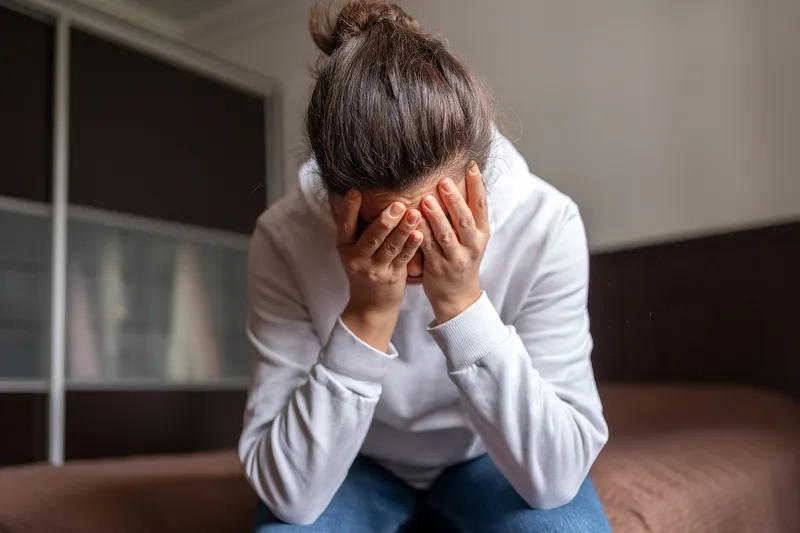
The stigma surrounding mental illness causes additional pain to those already struggling. It causes many people to not seek professional help and treatment for their mental illness. Together we can help end the stigma.
Speak up.
If you see or hear someone using stigmatizing language about mental illness, say something. It’s possible the person is just not educated enough on mental illness. Let them know that using stigmatizing language when talking about mental illness is not OK and it hurts others. Stigmatizing language is a huge factor in the continuation of the stigma of mental illness.
Catch yourself when you hold a preconceived opinion about someone because of their mental illness. Also, all people with mental illness deserve to be treated fairly and without stigma regardless of the severity of their illness.
Be vulnerable first.
Opening up to someone can help them open up to you too. Brené Brown brilliantly said, “Vulnerability is the last thing I want you to see in me, but the first thing I look for in you.” I take this statement as motivation to be the person that’s vulnerable first. I have found that a lot of people open up after I do first. I have been open that I struggle with depression and anxiety, and then some will say, “I’ve struggled with one of those before.”
Educate yourself on mental illness.
There is a lot of false information said about mental illness. If more people learned the truth about mental illness, it could decrease the stigma. Mental illness is just like a physical illness. It’s not a person’s fault for having a mental illness. There are several different causes of mental illness, including biology, experiences, trauma, genetics, and environment.
I’ve worn a green bracelet from NAMI (the National Alliance on Mental Illness) on my wrist for 5 years now. It says “STIGMA FREE” on it. I don’t take it off because I want to always be reminded of my passion for mental illness. It shows others that being stigma-free on mental illness is important. It gives me a chance to talk about it when someone sees my bracelet.
When I talk to someone about my depression or anxiety, I speak of it as if the stigma doesn’t exist. Talking about mental illness just as if it’s a physical illness helps to keep the conversation stigma-free.
Understand that mental illness is nothing to be ashamed of.
Stigma is what gives shame to mental illness. It’s not the person’s fault, and they deserve to be treated with the same respect as everyone else. Don’t hold a stigma against yourself if you have a mental illness. It is entirely possible to hold no judgment on others who have a mental illness, but then beat yourself up for your own diagnosis. Don’t do this. You’re the one who spends the most time with yourself, so you shouldn’t hold a stigma on yourself. You deserve the same love and compassion you’re giving to others.
Photo Credit: Sofia Bagdasarian / EyeEm via Getty Images
Important:The opinions expressed in WebMD Blogs are solely those of the User, who may or may not have medical or scientific training. These opinions do not represent the opinions of WebMD. Blogs are not reviewed by a WebMD physician or any member of the WebMD editorial staff for accuracy, balance, objectivity, or any other reason except for compliance with our Terms and Conditions. Some of these opinions may contain information about treatments or uses of drug products that have not been approved by the U.S. Food and Drug Administration. WebMD does not endorse any specific product, service or treatment.
Do not consider WebMD Blogs as medical advice. Never delay or disregard seeking professional medical advice from your doctor or other qualified healthcare provider because of something you have read on WebMD. You should always speak with your doctor before you start, stop, or change any prescribed part of your care plan or treatment. WebMD understands that reading individual, real-life experiences can be a helpful resource, but it is never a substitute for professional medical advice, diagnosis, or treatment from a qualified health care provider. If you think you may have a medical emergency, call your doctor or dial 911 immediately.









